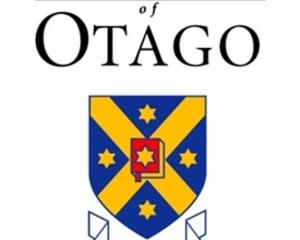The University of Otago will come down hard on students whose "loutish behaviour" at the weekend threatened the university's reputation, vice-chancellor Prof Sir David Skegg says.
The small number of students who behaved in a "totally unacceptable way", throwing bottles or lighting fires, would be dealt with under the university's disciplinary powers, he said in a statement last night.
"The university takes whatever action is appropriate under its code of student conduct, irrespective of whether a student is appearing before the courts.
"These are quite separate processes."
Disciplinary processes would take some time, because it was essential the correct procedures were followed, he said.
Sixty-seven people will appear in the Dunedin District Court this week after the disorder on Friday and Saturday nights.
Seventy-four people were arrested, but seven arrested for breaches of the peace were released without charge.
Other charges included breaching a temporary liquor ban, disorderly behaviour, obstruction and wilfully setting fire to property.
Most of those charged will appear in court on Thursday or Friday.
The university is already facing a legal challenge from the Otago University Students Association over its decision to expel for one semester a male student caught throwing missiles during the toga parade in February.
The OUSA has asked the High Court to decide whether the clause, which the university says allows it to discipline students for antisocial behaviour off campus, is legally enforceable.
Students continued to blame police for heavy-handed tactics, while police chiefs defended their stance yesterday.
"I saw a police officer get out of a paddy wagon and throw a bottle at someone's head," a Howe St resident said.
A group of female students said their friends had big bruises, which they said were from police batons.
They also said police went on to people's properties unnecessarily and were overzealous in restraining people.
Emergency response commander Inspector Alastair Dickie defended his officers' actions.
"If they [students] want to get in the way and get a bit ruffled up, too bad," he told NZPA.
"It's lucky that's all that happened to them, basically."
Insp Dickie said officers had the right, under section 317 of the Crimes Act, to enter any premises to prevent an offence that was likely to cause immediate and serious injury to any person or property.
Bottles were thrown at police from private properties, and many residents refused to go inside their homes.
Ambulance staff took 15 people to hospital with injuries from being hit by "missiles" or being cut by broken glass left on the road, he said.
Insp Dickie also defended the use of pepper spray, saying it was the best of three options - the others being dogs or batons - and caused only temporary irritation.
"You could say that irritation and disturbance is the same as what these people are causing this city, and to police."
The cost of policing the event has yet to be determined.
An unsigned note was put in letterboxes throughout Castle St North and Howe St yesterday, telling those who lit fires or threw bottles: "You are a [sic] extremely unwelcome temporary resident.
"Go back to your corner of the country."
Prof Skegg said it was sad the "loutish behaviour" of a small number of students at the weekend threatened the university's reputation.
"The great majority of our undergraduates and postgraduates are mostly hard-working, delightful young people.
"Because of Otago's outstanding reputation, we attract highly talented students from all over New Zealand and from nearly 100 countries."





